Korean Culture in KDH
Discover the rich Korean mythology, K-pop fandom, food, and places woven into the fabric of the film.
🏮 Mythology & Folklore
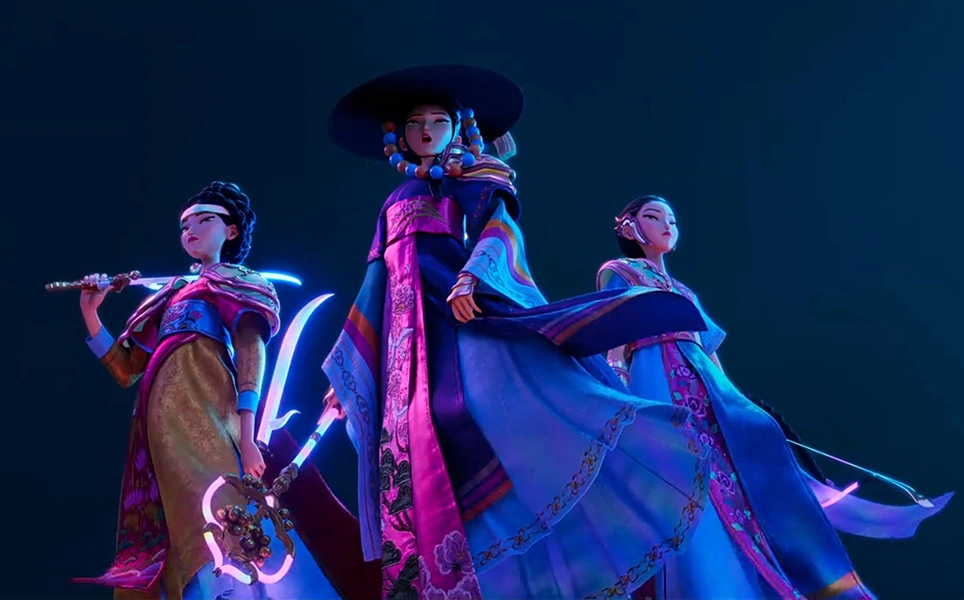
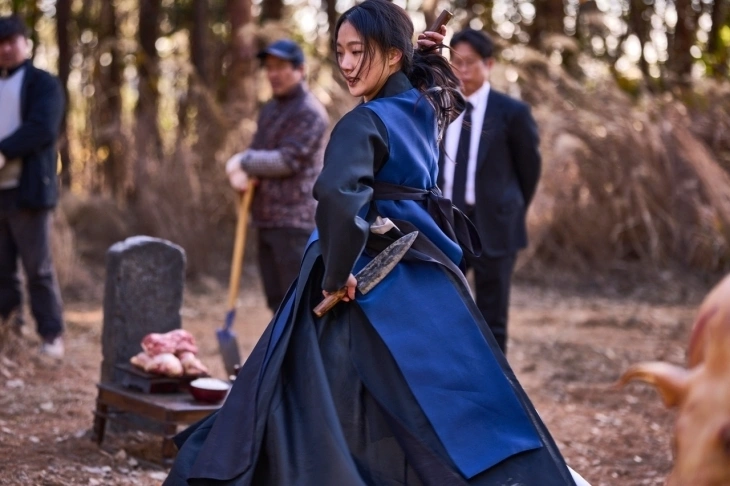
Korean Shamanism (Mudang)
The film's demon-hunting abilities are inspired by Korean shamanism, where female shamans, known as mudang, historically used song and dance to protect their communities from evil spirits.
In the Film: The members of HUNTR/X use their singing voices to create a magical barrier called the Honmoon, directly reflecting the protective rituals of mudang.
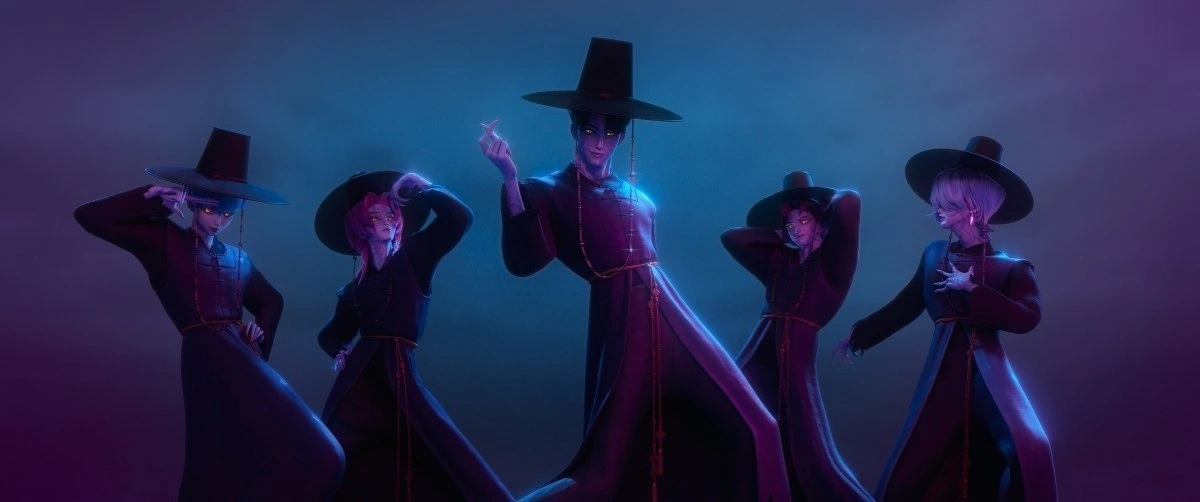
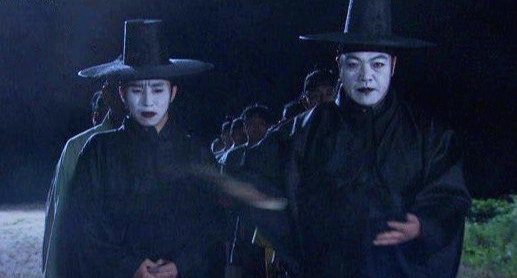
Grim Reapers (Jeoseung Saja)
In Korean mythology, Jeoseung Saja are the grim reapers or messengers of the afterlife. They guide souls to the underworld.
In the Film: The rival boy band, the Saja Boys, are named after these figures. Their charming idol appearance hides their true demonic nature as they steal the souls of their fans.
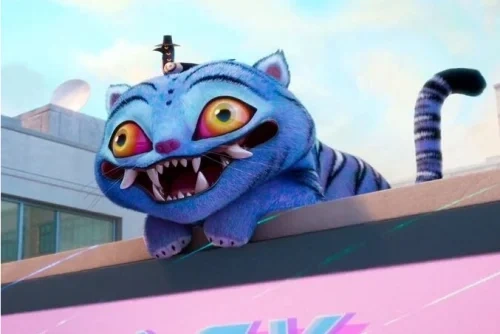
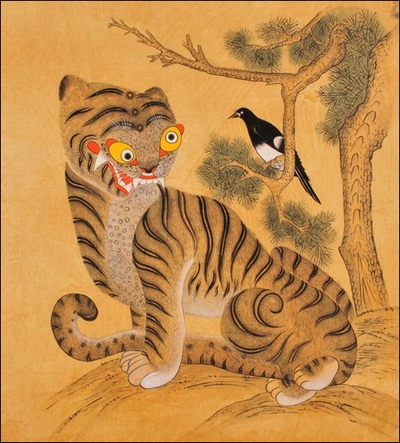
Hojakdo (Tiger and Magpie Painting)
A genre of Korean folk art (Minhwa) featuring a tiger, a magpie, and a pine tree. The tiger, a symbol of authority, is often depicted with a comical or foolish expression as a form of satire against the aristocratic class.
In the Film: The 'derpy' tiger, a breakout character, is a direct reference to Hojakdo paintings. This character, an oversized blue cat with a snaggletooth grin, is the pet of Jinu, the leader of the Saja Boys, adding a layer of Korean art history to the film.
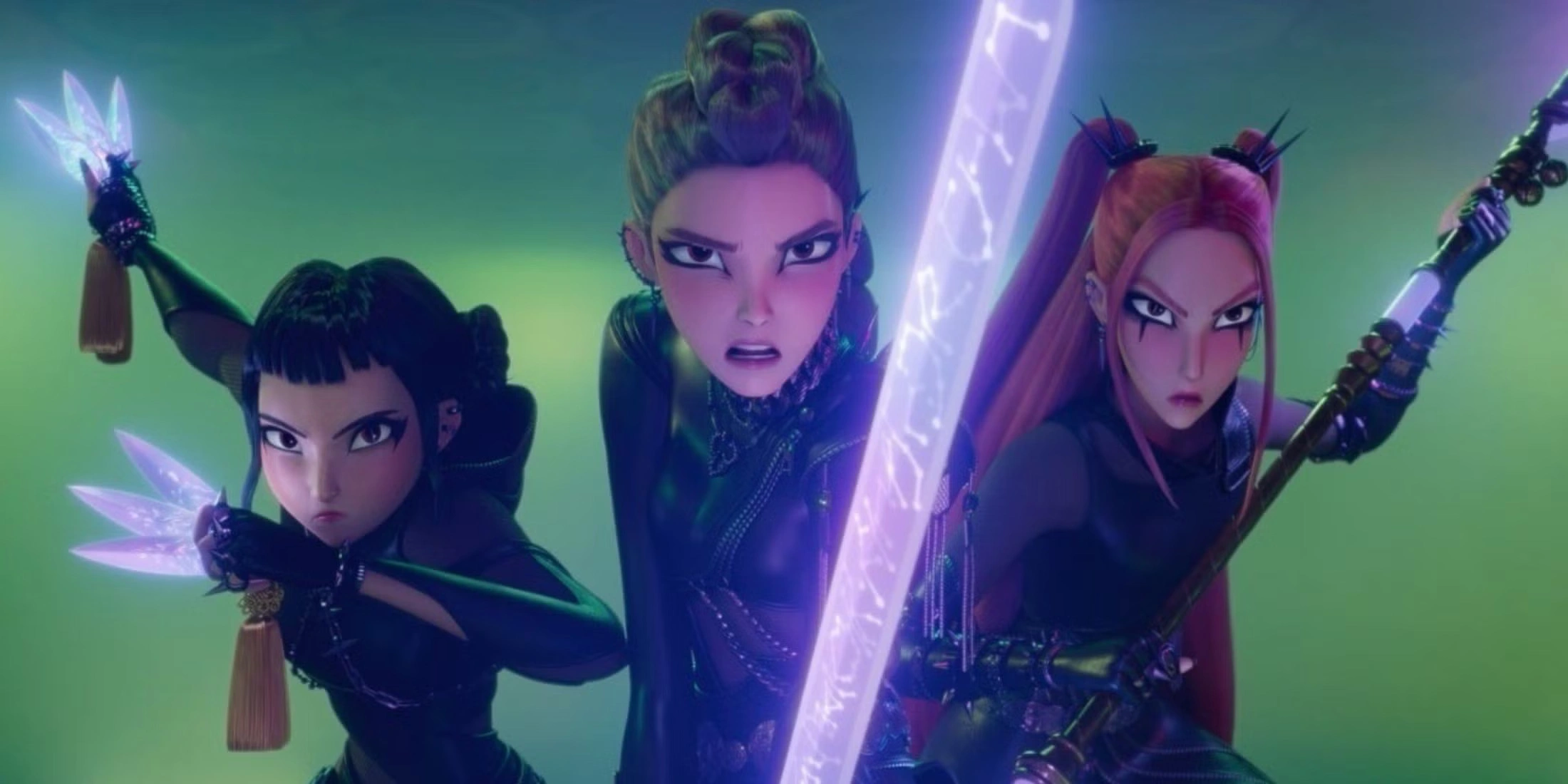
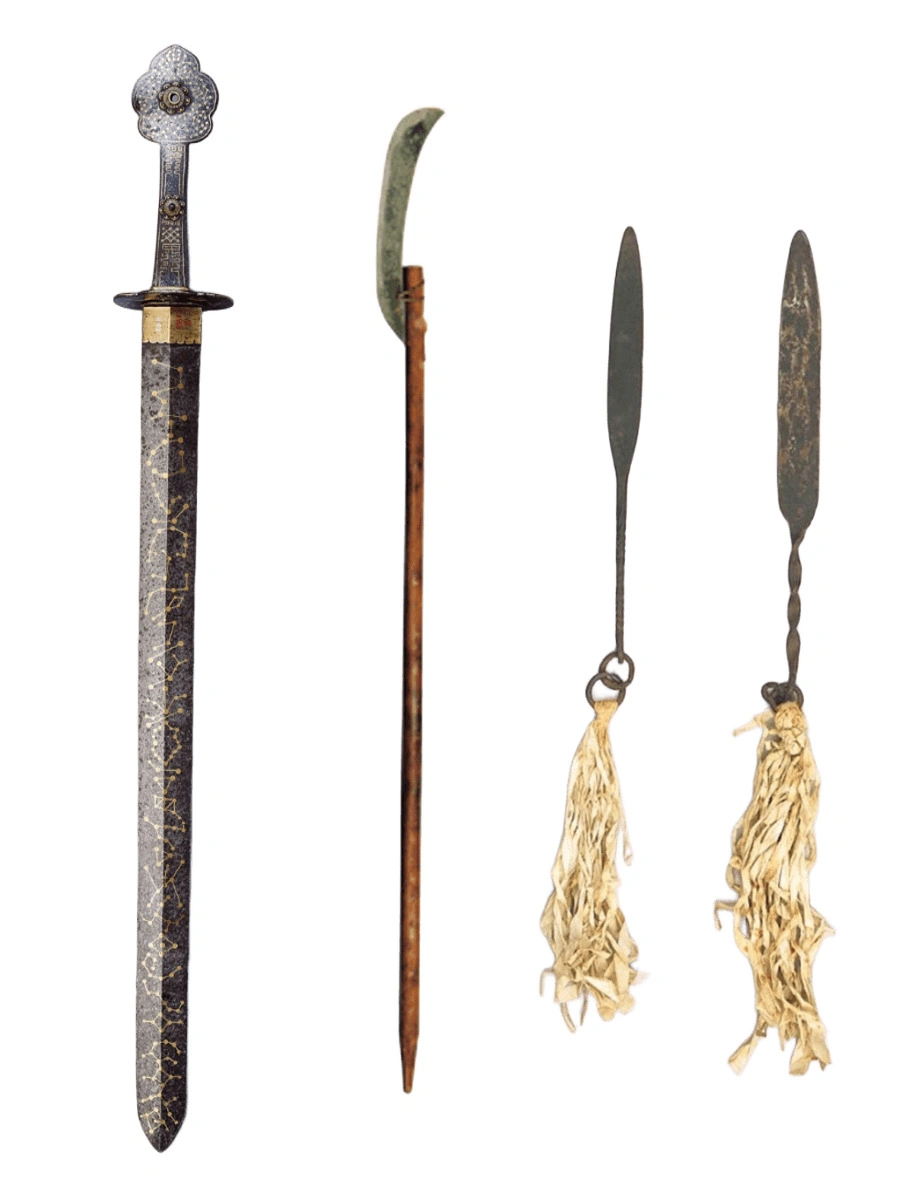
Sacred Weapons and Items
Traditional Korean culture includes various symbolic weapons and decorative items believed to have protective or mystical properties.
In the Film: The hunters wield weapons like the saingeom (a double-edged sword) and woldo (a polearm), and wear accessories like norigae (traditional pendants) that are woven into their costumes and weaponry.
A Love Letter to Korean Culture
"K-pop: Demon Hunters" serves as a cultural bridge, introducing international audiences to Korean traditions, values, and modern lifestyle through engaging storytelling and authentic representation.
By blending traditional folklore with the global phenomenon of K-pop, the film offers a vibrant look at both ancient spiritual traditions and the contemporary entertainment scene of Korea.